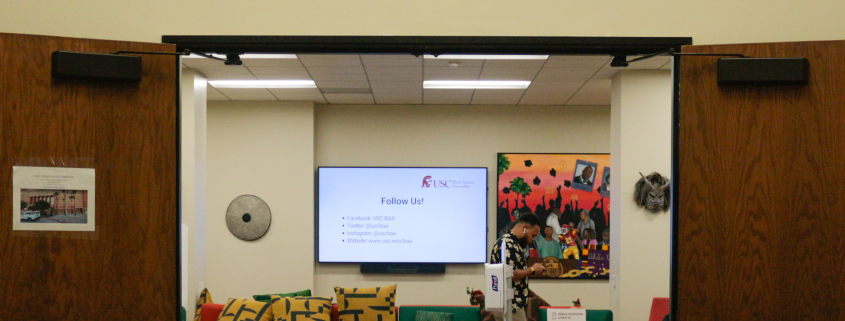Middle Eastern and North African students fight for recognition

A petition from the Middle Eastern and North African Student Association created in July calls for USC’s admission application to expand its racial and ethnic categories to include Middle Eastern and North African identifying students.
“This lack of university racial/ethnic inclusion causes inaccurate depiction of data, including student body diversity demographics, funding, research, and equitable minority resources,” wrote Patricia Gerges, a senior majoring in industrial and systems engineering who created the petition, in the petition text. “In addition, the lack of accurate census contributes to the absence of culturally-specific and competent therapy appointments within the USC counseling and mental health services.”
In a MENASA meeting held Friday at the MENA Lounge, a cultural space for MENA students at USC, students discussed their efforts to be recognized by the University. The students are also calling for more funding and their own cultural center.
“It’s been since 2019, and I feel like I’ve been talking and saying the same thing over and over,” said Anthony Khoory, a senior majoring in sociology, and MENASA co-director.
The only option for MENA students on forms such as the census, the USC application or standardized tests is the “white” racial and ethnic box, even though they don’t identify as white. As a result, students in the association feel that their unique racial, cultural and ethnic identity isn’t being recognized.
MENA students present at Friday’s meeting said they felt the addition of a racial and ethnic category on the USC application would not only provide recognition for individual MENA students and their culture, but it would also provide crucial data on MENA students, such as in the case of health issues that are specific to MENA people. MENA people have an increased risk of cardiovascular and other diseases, according to the World Heart Federation.
Working with the University has often been difficult for MENASA, according to Nour Myra Geha, a sophomore majoring in international relations and MENASA co-director, even considering the progress that has been made.
“At that point, I wasn’t advocating. At that point, I was fighting,” Geha said of the group’s struggles to get recognition from the University.
Khoory and Geha also spoke about MENASA’s experience with the Undergraduate Student Government at Friday’s meeting. After years of attempting to be admitted to the USG as its own assembly, MENASA was given a trial run this semester as an assembly, with funding of $5,000 from USG’s funding budget of more than $300,000.
Getting to where they are now, Geha said, has been a struggle for MENASA. She detailed how difficult it has been to get information from the University on MENA students as a result of MENA students’ inability to identify as such when they apply to USC.
“One thing is that USC, in the beginning before they gave us MENASA or before they gave us the MENA lounge, when we asked for numbers: How many Middle Eastern students are on campus? Allegedly, that’s what they say — they don’t have numbers, that they don’t know how many Middle Eastern students are on campus,” Geha said.
Getting recognition for MENA students would have a positive impact on the entire community, but according to Razanne Mihtar, a freshman majoring in biochemistry, it would also mean a great deal to them as individuals.
“When I call myself a person of color, I feel like an imposter because I’m not listed there — I’m either invalidated or I’m an imposter, and I feel like I’m not recognized as an individual,” Mihtar said.
At the end of the meeting, the students discussed their hopes for the future of MENASA and the MENA Lounge. Obtaining more funding and recognition, they agreed, would be critical to improving their programming and having their own cultural center.
Geha and Khoory said they hope that progress can be made without having to continue to struggle.
“We’ve been persisting for three years, and it’s a good start and we’re very happy with the start. But we don’t need to fight anymore. We don’t want to fight anymore,” Geha said. “At this point, we want to communicate, very reasonably: This space is too small for Middle Eastern students on campus.”

